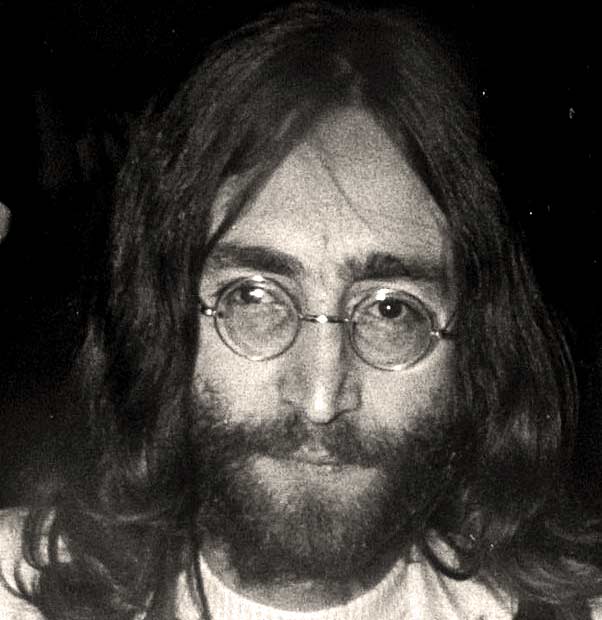By Joost Evers / Wikimedia Commons / CC-BY-SA-3.0 / GFDL
John Lennon
(Singer)
9 October 1940 – 8 December 1980 (Aged 40)
Lennon was a legendary British singer/songwriter and co-founder of The Beatles, one of the most influential and successful bands in music history.
In 1956, Lennon formed a band known as The Quarrymen, which ultimately became The Beatles in 1960.
Lennon left the band in 1969, and had a successful solo career, often collaborating with his second wife, Yoko Ono.
During his solo career, Lennon released the iconic Imagine, his most successful single and is consistently ranked as one of the all-time great songs.
His record Give Peace a Chance also became an anthem during the anti-Vietnam war protests in the 1970s.
After the birth of his son, Sean, Lennon took a hiatus from music for nearly five years. In October 1980, he returned with the release of a new album.
A few weeks later, Lennon was shot and killed by Mark Chapman, a crazed fan who had got Lennon’s autograph earlier that day.
Lennon was posthumously inducted into the Rock and Roll Hall of Fame as both a member of The Beatles and as a solo artist.
Steve McQueen
(Actor)
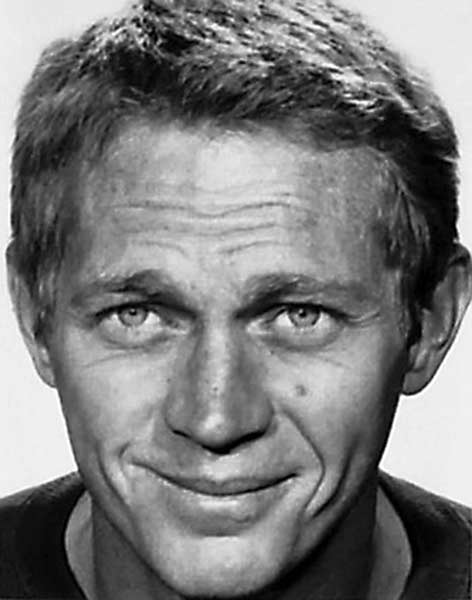
24 March 1930 – 7 November 1980 (Aged 50)
McQueen was an American actor and one of the biggest film stars in the world at the height of his career.
Among his best-known films are The Getaway, Bullitt, The Great Escape, The Magnificent Seven and Papillon.
An avid motorbike and race car enthusiast, McQueen performed many of his stunts, including much of the legendary car chase in Bullitt.
On the night of the infamous Manson Family murders in 1969, McQueen had been invited to go to Sharon Tate’s house but stayed home with his girlfriend.
It was later discovered that McQueen’s name was also on Manson’s hit list for rejecting one of his screenplays.
In 1979, McQueen was diagnosed with incurable cancer associated with exposure to asbestos.
Against all medical advice, McQueen traveled to Mexico under a false name to remove a tumor on his liver.
Less than a day after undergoing surgery, McQueen died from heart failure at the age of 50.
Jesse Owens
(Olympic Athlete)
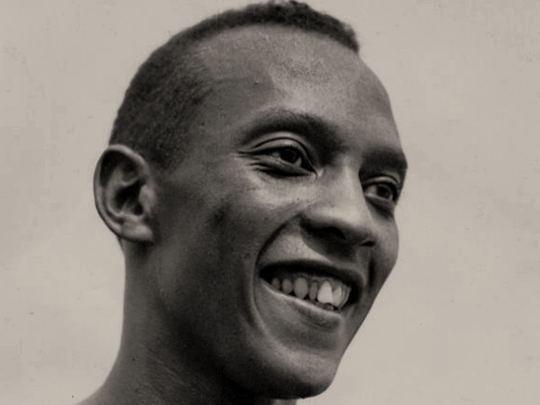
12 September 1913 – 31 March 1980 (Aged 66)
Owens was a famous American Olympic athlete, widely considered one of the greatest athletes of all time.
In the 1936 Berlin Olympics, Owens won four gold medals, making him the most successful competitor at the games.
This feat was made all the more impressive as it unfolded under the eyes of Adolf Hitler and the Nazi hierarchy, flying in the face of their contention that the Aryan race was superior.
In 1935, Owens achieved one of the greatest feats in sporting history when, in the space of 45 minutes, he broke the world record for the 220-yard dash, 220-yard low hurdles, the long jump, and equaled the 100-yard dash record.
Following his return from the Berlin Olympics, Owens was never congratulated by U.S. President Roosevelt, and never invited to the White House, as was custom.
Owens later said that he was treated as more of an equal in Nazi Germany than he was in his own country.
A victory parade was held in his honor in New York City, however, to get to the reception being held in the Waldorf Astoria, Owens had to use the service entrance as he was not allowed use the main entrance.
Owens tried to capitalize on his success commercially, but his amateur status was then revoked by U.S. athletic officials, ending his track career.
He tried to make money from novelty races, before becoming a goodwill ambassador, traveling and giving speeches.
In 1976, U.S. President Ford gave Owens the Presidential Medal of Freedom.
Having been a heavy smoker for much of his life, Owens died from lung cancer at the age of 66 in 1980.
Alfred Hitchcock
(Director)
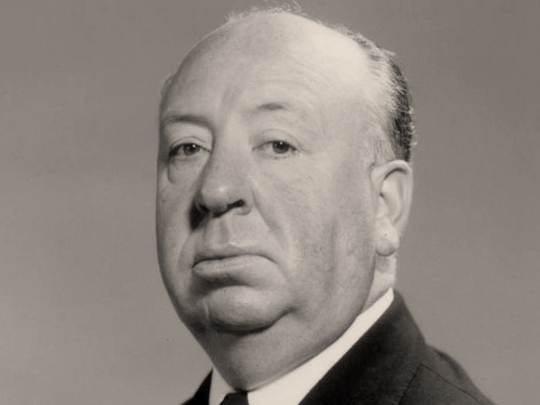
13 August 1899 – 29 April 1980 (Aged 80)
Hitchcock was a British film director who is recognized as one of the most influential directors of all time.
He was best known for creating suspense in his many thrillers, such as Psycho, Rear Window, and Vertigo.
Hitchcock was nominated for five Academy Awards as Best Director, though never won one, while his film Rebecca did win the award for Best Picture in 1940.
In his final years, Hitchcock’s health declined before dying of kidney failure at the age of 80. He was cremated and had his ashes scattered in the Pacific Ocean.
Colonel Harland Sanders
(Chef)

9 September 1890 – 16 December 1980 (Aged 90)
Sanders was an American businessman who founded the world-famous KFC (Kentucky Fried Chicken) fast-food chain.
In 1930, after having numerous other jobs, Sanders opened a service station selling fried chicken.
His chicken earned such a reputation that the state Governor made him a Kentucky Colonel in 1935.
In 1952, Sanders opened his first franchised restaurant in South Salt Lake, Utah.
Over the next decade, the business grew exponentially, and by 1964 there were over 600 Kentucky Fried Chicken restaurants in operation.
That year, Sanders sold his share of the company for $2 million.
He remained a brand ambassador and spokesman for KFC until his death in 1980 when he died from leukemia at the age of 90.
Peter Sellers
(Actor)
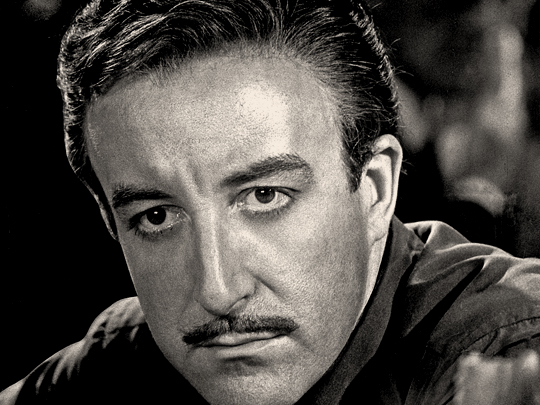
8 September 1925 – 24 July 1980 (Aged 54)
Sellars was a renowned and gifted British comedy actor.
He is best known for his role as Inspector Clouseau in The Pink Panther films and his multiple roles in Dr. Strangelove, for which he received one of his three Academy Award nominations.
The body of work Sellars left behind has been credited as being hugely influential for many comedic actors and performers in the years since.
His talent and versatility made him one of the most loved actors of his generation.
During his life, Sellars was married four times and suffered from drink and drug problems.
In his later years, an ongoing heart condition caused much stress to his physical and mental well-being.
He died of a heart attack at the age of 54.
Jean-Paul Sartre
(Writer/Philosopher)
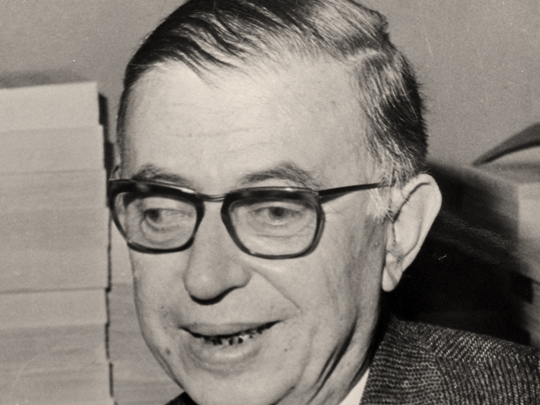
21 June 1905 – 15 April 1980 (Aged 74)
Sartre was a French intellectual and one of the most influential philosophers of the 20th century.
A strong proponent of existentialism, his work on the subject saw him awarded the 1964 Nobel Prize in Literature, which he turned down.
In his private life, Sartre had a famously open relationship with fellow French existentialist Simone de Beauvoir.
In his later years, Sartre was almost completely blind and died from pulmonary edema at the age of 74.
After his cremation, Sartre’s ashes were buried in Montparnasse Cemetery, Paris, where he shares a grave with de Beauvoir.
Dorothy Day
(Activist)
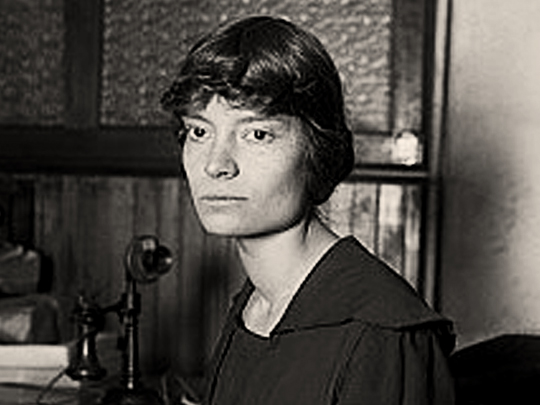
8 November 1897 – 29 November 1980 (Aged 83)
Day was an American social activist, who established the Catholic Worker Movement in the United States, tackling social injustice on behalf of the poor.
In 1933, Day founded The Catholic Worker newspaper, which she edited until her death in 1980.
Day died of a heart attack at the age of 83 in Manhattan, New York, in a Catholic settlement house she had helped to establish.
Mae West
(Actress)
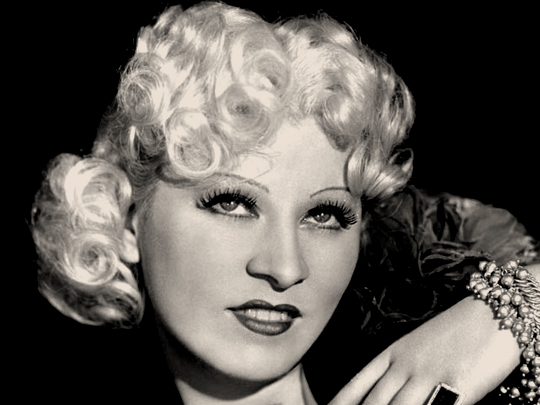
17 August 1893 – 22 November 1980 (Aged 87)
West as an American actress who was a vaudeville star before going on to become one of the biggest Hollywood stars of the 1930s, with her renowned sexuality often drawing the ire of censors.
After her 1943 film The Heat’s On was heavily censored, West was left angry and did not star in a film again until 1970.
Instead, West turned to having a successful stage career, as well as a singing career.
After returning to film in 1970 for Myra Breckinridge, West appeared on TV occasionally before her final film in 1978, Sextette.
West suffered two strokes in the months leading up to her death, dying at home at the age of 87.
Mohammad Reza Pahlavi
(Iranian Shah)
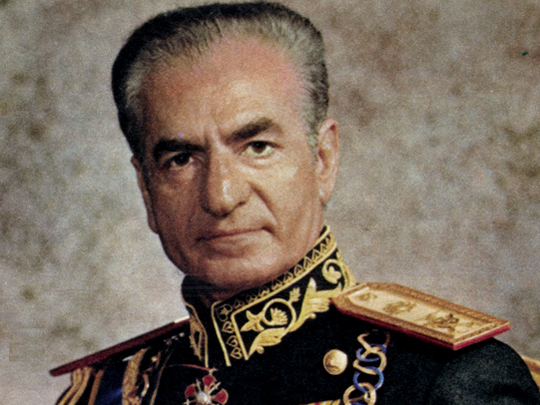
26 October 1919 – 27 July 1980 (Aged 60)
Pahlavi was the Shah of Iran from 1941 until 1979 when he was overthrown in the Iranian Revolution.
Throughout his rule, Pahlavi had a pro-Western and modernizing policy, which along with secularisation, eventually saw him lose the support of the working class and the Shia clergy who had supported him.
After his overthrow, Pahlavi lived in exile in Egypt, among other countries, before traveling for medical treatment to the United States.
Pahlavi then returned to Egypt, where he died suffering from cancer at the age of 60.
